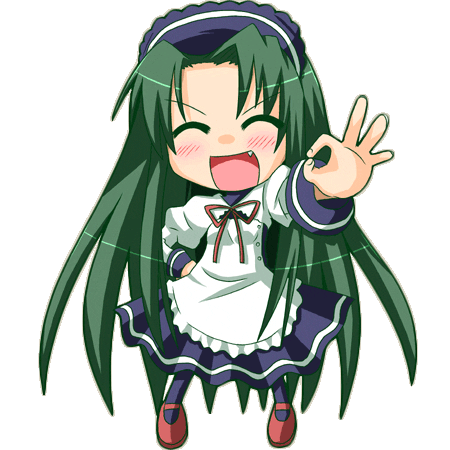Words carry different meanings to different people. For example, the most common word for steamed white rice in Japanese is gohan, yet I’ve noticed that whenever you’re eating at a Western-style restaurant like Denny’s, it will always be called by its English name, rice (raisu). Another word that the Japanese have imported from English with a slightly altered nuance is “propose,” which refers only to a proposal of marriage, and I’m sure that somewhere, a Japanese woman has gotten the wrong idea when listening to a business proposal from a male colleague. One of my favorite characters from Lucky Star is Patty, a female otaku from America who learned Japanese from anime and manga, resulting in her speaking the language very strangely, to say the least. In her official “image song” there’s a section where she berates her classmates for mixing up the Japanese word kaseifu (what a normal maid who cleans your house is known as) and the English word maid, which carries connotations of a super-kawaii servant who will cheerfully fulfill your every request. “A kaseifu is someone that’s convenient to have around. A maid is someone who can make you feel happy inside forever!” On the surface the two words mean the same thing, and yet they’re totally different.

A maid is a person who can make you feel happy inside, as long as you use the English term.















